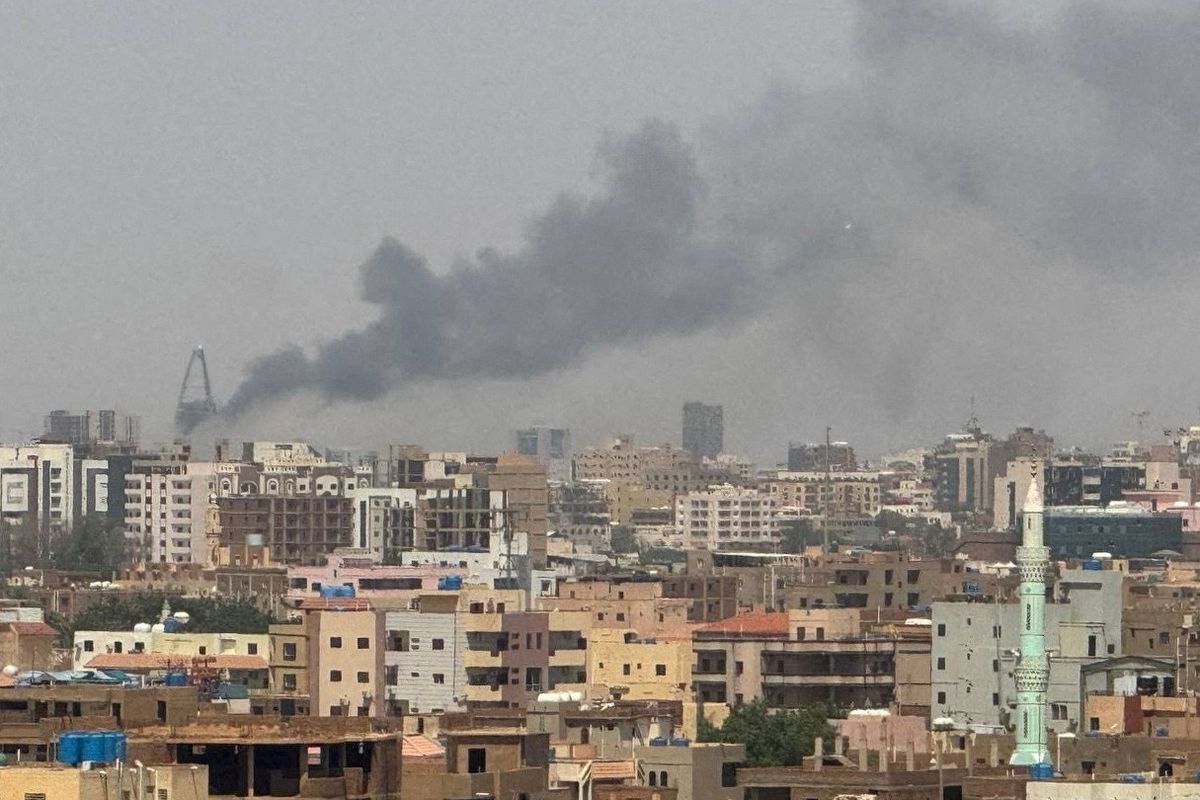Sudan’s army launches major offensive in capital amid 17-month conflict

Plumes of smoke rise during clashes between the paramilitary Rapid Support Forces and the army in Khartoum, Sudan, September 26, 2024.
Reuters
Army lost most of capital early in the war
Rival RSF pushing to take key Darfur city
Army chief Burhan tells UN any peace effort depends on RSF laying down arms
Sudan’s army launched artillery and airstrikes in the capital on Thursday, its largest operation to regain ground since the start of its 17-month war with the Rapid Support Forces (RSF), witnesses and military sources said.
The offensive, aimed at recapturing areas the army lost at the start of the conflict, came ahead of an address by its commander, General Abdel Fattah al-Burhan, at the United Nations General Assembly in New York.
Burhan said peace efforts depend on the RSF laying down arms. He accused unnamed countries of backing the RSF with men, money, and weapons, but declared the army would "defeat and dislodge these aggressors, no matter how much assistance they receive."
Witnesses reported heavy bombardment and clashes as army troops attempted to cross bridges over the Nile that connect the three cities making up the greater capital: Khartoum, Omdurman, and Bahri.
“The army is carrying out heavy artillery strikes and airstrikes on Halfaya and Shambat,” said Ahmed Abdalla, a 48-year-old resident of Bahri, referring to areas near the river. “The sounds of explosions are very loud.”
Footage showed black smoke rising above the capital, with the sounds of battle echoing in the background.
Army sources said their forces had crossed bridges in Khartoum and Bahri, while the RSF claimed it had thwarted attempts to cross two bridges into Khartoum. Reuters could not independently verify these accounts.
Though the army regained some ground in Omdurman earlier this year, it largely relies on artillery and airstrikes and has struggled to dislodge RSF ground forces embedded in other parts of the capital.
Darfur Fears
The RSF has made advances in other regions of Sudan in recent months, displacing more than 10 million people, pushing parts of the country into extreme hunger or famine, and drawing foreign powers into the conflict by supplying both sides with material support.

Diplomatic efforts led by the United States have stalled, with the army refusing to attend talks last month in Switzerland.
RSF leader Mohamed Hamdan Dagalo, in a pre-recorded speech to the U.N. General Assembly released shortly after Burhan spoke, reiterated his force’s willingness to agree to a nationwide ceasefire to allow aid delivery.
However, the RSF has continued offensives, intensifying its siege of al-Fashir, the capital of North Darfur state in western Sudan. Al-Fashir remains the army’s last stronghold in Darfur, where the U.N. and rights groups have reported ethnically targeted attacks and a dire humanitarian situation. The RSF has denied responsibility for the violence.
The U.N. human rights office said Thursday it had documented summary executions, sexual and gender-based violence, and abductions of women and young men in al-Fashir, alongside rising civilian casualties.
"Based on past experience, if al-Fashir falls, there is a high risk of ethnically targeted violations and abuses, including summary executions and sexual violence by the RSF and allied militias," U.N. Human Rights Chief Volker Turk said.
The U.N. Security Council and secretary-general have demanded an end to the siege of al-Fashir, home to more than 1.8 million residents and displaced people.
The conflict erupted in April 2023 after tensions between the RSF and the army—both of whom had been jockeying for power ahead of an internationally backed transition to civilian rule—boiled over. The two sides had previously shared power following a 2021 coup, two years after longtime autocrat Omar al-Bashir was overthrown in a popular uprising.







Comments
See what people are discussing